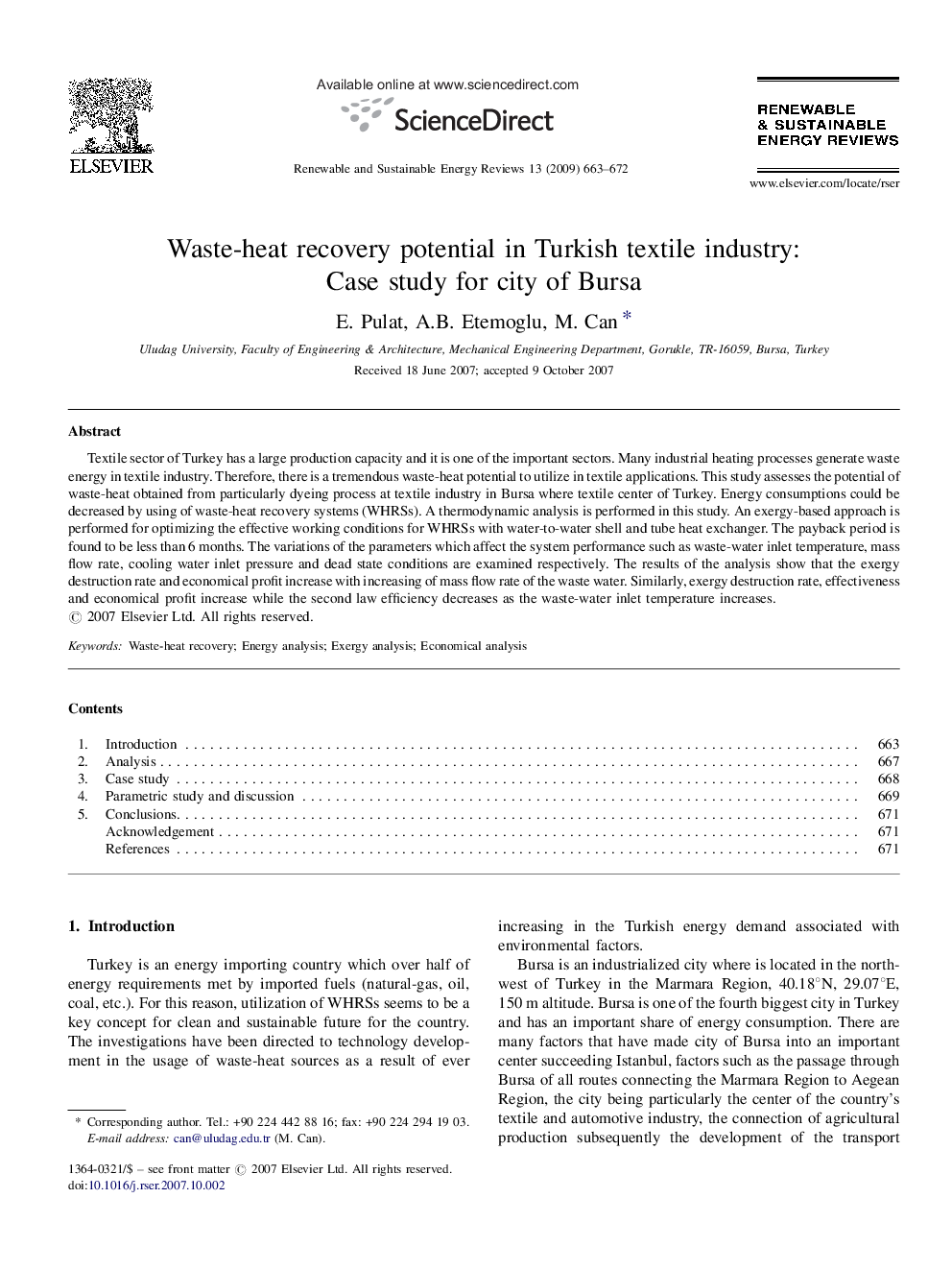| Article ID | Journal | Published Year | Pages | File Type |
|---|---|---|---|---|
| 1752199 | Renewable and Sustainable Energy Reviews | 2009 | 10 Pages |
Textile sector of Turkey has a large production capacity and it is one of the important sectors. Many industrial heating processes generate waste energy in textile industry. Therefore, there is a tremendous waste-heat potential to utilize in textile applications. This study assesses the potential of waste-heat obtained from particularly dyeing process at textile industry in Bursa where textile center of Turkey. Energy consumptions could be decreased by using of waste-heat recovery systems (WHRSs). A thermodynamic analysis is performed in this study. An exergy-based approach is performed for optimizing the effective working conditions for WHRSs with water-to-water shell and tube heat exchanger. The payback period is found to be less than 6 months. The variations of the parameters which affect the system performance such as waste-water inlet temperature, mass flow rate, cooling water inlet pressure and dead state conditions are examined respectively. The results of the analysis show that the exergy destruction rate and economical profit increase with increasing of mass flow rate of the waste water. Similarly, exergy destruction rate, effectiveness and economical profit increase while the second law efficiency decreases as the waste-water inlet temperature increases.
